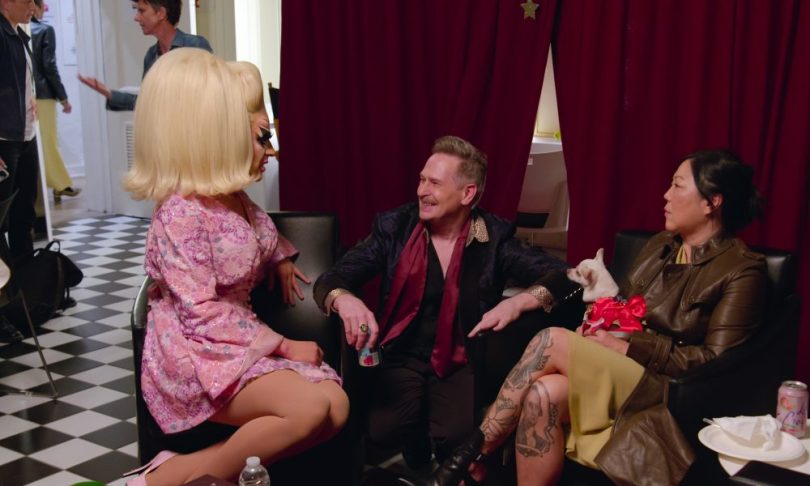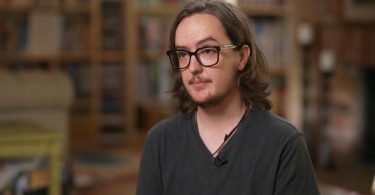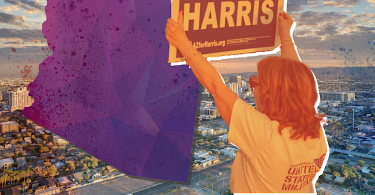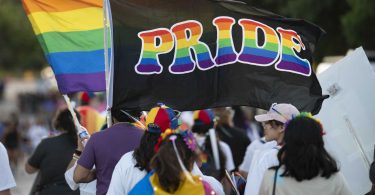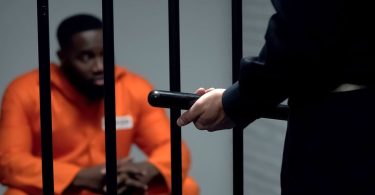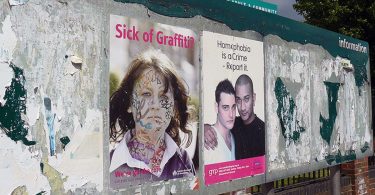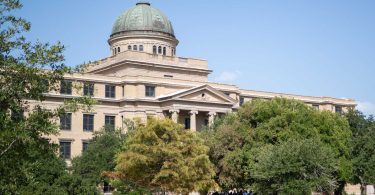FAIRFAX, Va. – Perhaps nothing else in media gets the nature of modern fascism better than Season 4 of the Boys. For those who haven’t seen it, this Amazon Prime show is a gory, dark drama/comedy series about a world where superheroes are real, managed (fairly poorly) by a mega-corporation, and who are–for the most part–entirely awful human beings whose absolute power has corrupted them absolutely.
When the first season aired in 2019, its best moments were linked to events in the real world. Season 2 built on this, exploring how a world with actual Nietzschean supermen could devolve into fascism and fascist ideology.
Seasons 2 and 3’s primary antagonist superheroes were Homelander (imagine a Superman raised by white supremacists) and Stormfront (an actual German Nazi from WWII who was brought back from cryogenic stasis). The show’s reflection of the evils of the real world became more and more direct as the seasons progressed, but there was still a bit of a distance from reality. It was easy to treat Stormfront as something altogether different from modern Americans. A viewer could still see the evil character as a cartoonish relic from another country in a bygone age.
Season 4 of The Boys, however, has dispensed with even the pretense that it isn’t talking directly to the situation in the U.S. today. It asks the question, “what if Fascism came to America, and half the public really, really liked it?”
While some critics have panned the new season for its overly blunt analogies, they do reflect real life rather than science fiction. Our country is now seeing serious proposals that would normally be red flags.
We have politicians supporting things like the mass arrests of political opponents; open discussions of seizing power for generations; the institution of a state religion; the eradication of transgender people; the execution the former chairman of the Joint Chiefs of Staff for treason; and dispensing with the constitution. And yet, just like in the Boys, many people don’t see these ideas as a threat. In fact, some actively welcome them.
While I was watching the new season, I was struck by how many times I found myself ticking off things that I wrote about in my book, American Fascism, and in Jason Stanley’s How Fascism Works: The Politics of Us and Them.
The show fundamentally gets that, at its core, fascism is indeed the politics of us and them. Fascism frames everything as a fight between the good, pure herrenvolk against the atheistic, hedonistic profligates destroying the country; as a battle between the real Americans versus those who would destroy them.
At every opportunity, The Boys reminds viewers that corporations, the media, politicians, celebrities, and commentators will all ruthlessly exploit this for their own ends, even if many of them aren’t buying what they’re selling.
The show acknowledges this directly. Season 4’s new superhero villain is Firecracker, who’s basically a young and pretty female version of Alex Jones. She admits that she doesn’t actually believe the culture war conspiracy-theory baloney she peddles. It is transactional: her viewers get to feel outraged and powerful, and she gets the power.
Almost everyone in this fascist ecosystem is spouting vranyo, a Russian word which loosely translates as “useful lies that most people know are lies”, and the villains are fine with that. The outrage bait, and the rubes who do believe the vranyo, give them that power.
While watching Season 4’s first three episodes, I was often surprised by the writers’ familiarity with, and understanding of, fascism’s less obvious aspects. In one episode the megacorp Vought puts on an Ice Capades-style show whose theme is that saying “happy holidays” is a war on Christmas and Christians…but does so in a smiley-happy upbeat way, complete with music in a major key.
This is a classic example of the phenomenon described in Hacker and Pierson’s book, “Let Them Eat Tweets,” where corporations exploit cultural grievances to build political movements friendly toward their own bottom line. The book draws a direct line between right wing populist movements and the corporations using them as a vehicle to put politicians in place who will ensure the government takes a very hands-off approach to their shenanigans (and profits).
The show’s writers get the difference between istina (the real truth), pravda (the truth we create), and vranyo. They fundamentally understand how news outlets can create pravda with the “firehose of falsehood” model. The news media in The Boys is 100% on board with fascism, with some of the parody hardly being parody at all.
When three pro-superhero dupes are murdered (by superheroes), the corporate-controlled media in the show blames it on “socialists”, while elevating the deceased to martyrdom. It’s not hard to see shades of Horst Wessell in this.
The Boys also understands that “us versus them” fascism requires an enemy, ideally “enemies [who] are at the same time too strong and too weak,” as Umberto Eco wrote in his essay on Ur-Fascism. He was referring to Jewish people when he wrote it in 1995; but in Season 4 of the The Boys, the writers correctly identified the .5% of the population in the US that meets Eco’s criteria for targeting by fascism: transgender people.
As Eco noted, “Ur-Fascism grows up and seeks consensus by exploiting and exacerbating the natural fear of difference. The first appeal of a fascist or prematurely fascist movement is an appeal against the intruders.”
When we meet Firecracker at a convention for conspiracy theorists, she tells her gullible and adoring audience that Tom Hanks and Oprah Winfrey are operating a secret child trafficking ring that will home-deliver “a child forced to have trans surgery.”
Later, when Homelander is whipping up a crowd, he tells them that “They want to replace you with some Godless, non-binary socialist like them. Their depraved leader commands it.” He next tells the crowd that “we are the defenders of real Americans.”
After the rally, Fircracker tells reporters, “”If she (a protagonist) really cares about women, why does she let these transgenders into girls’ bathrooms?” The Boys is perhaps the only mass market media to have correctly recognized that fascist movements globally have zeroed in on transgender people as their primary target.
The pairing of superheroes and fascism is a natural one, too. Eco noted that, “in [fascism] everybody is educated to become a hero. In every mythology the hero is an exceptional being, but in Ur-Fascist ideology heroism is the norm.” It’s almost certainly not a coincidence that completely amoral, vain, petty, narcissistic, thin-skinned, fascist Homelander repeatedly tells his audiences of adoring fans, “You’re the real heroes,” without believing a word of it.
Homelander sees people as “toys” who exist only to boost him to his rightful place as ruler. Umberto Eco perfectly captured Homelander’s attitude towards people: “the Leader, knowing that his power was not delegated to him democratically but was conquered by force, also knows that his force is based upon the weakness of the masses; they are so weak as to need and deserve a ruler.” At the same time, the masses who support Homelander and his aspirations believe that they are the best sort of “real Americans.” Or, as Eco put it, “the members or the party are the best among the citizens.”
Even the gory, blood-soaked tone of the series captures an important element of fascism. In Robert Paxton’s 2005 book The Anatomy of Fascism, he describes how a key characteristic of fascism is the beauty of violence when dedicated to the group’s success. Fascism glorifies this violence and disdains existing legal restrictions on their exercise.
In Season 4, the baddies deliberately amp up tensions and hostility to spur their supporters to even more violent acts directed against the opponents of superheroes. All the while the mob is dressed in red, white, and blue.
The Boys explores a world where the Nietzschean supermen are free to use unspeakable levels of violence for petty personal reasons and in pursuit of power, without repercussions. It directly answers the question of what could happen if a leader with the personality of Homelander legally had the right murder anyone they wanted on a whim. Unsurprisingly it’s a dystopian bloodbath, with Homelander keeping those around him in line with violence and extreme levels of intimidation.
The more I watched, the more it became abundantly clear that the writers of The Boys get fascism at a fundamental level. Whether they have read Hacker, Pierson, Stanley, Eco, Paxton, or even me (I apologize if they did), I don’t know. Regardless, they capture so many of the crucial underlying aspects of a fascist movement.
If the show’s analogies to what’s happening now in the real world feel too blunt, perhaps it’s because they’re merely pointing out the blindingly obvious.
Season Four of The Boys is now streaming on Amazon Prime.

